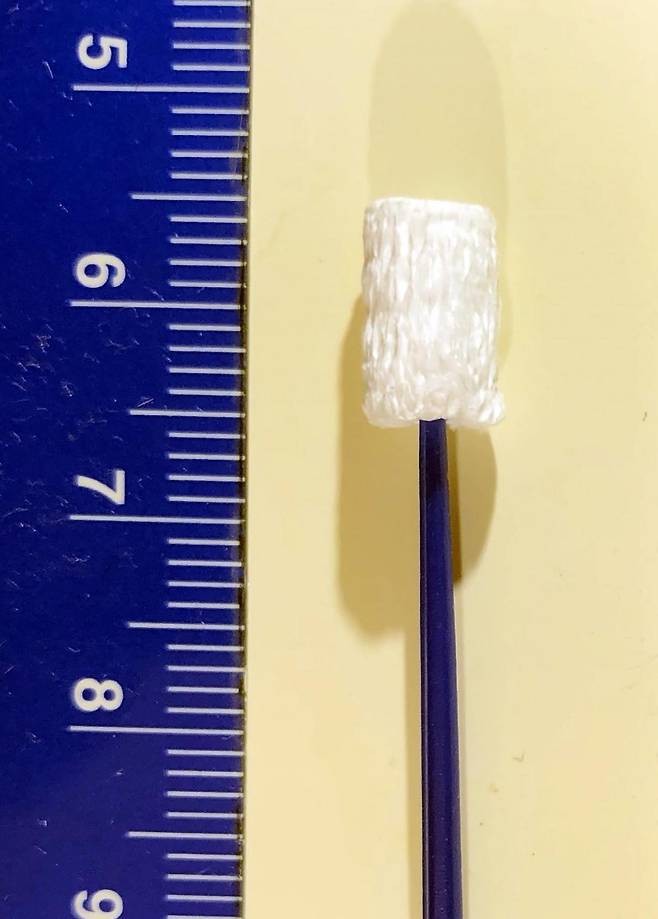Nanofiber swabs developed to enhance COVID-19 test accuracy

A group of researchers from the University of Nebraska and the National Strategic Research Institute have developed ultra-absorptive nanofiber swabs that could reduce the number of false negative tests for COVID-19.
Currently, the most sensitive and widely used test for the coronavirus uses a method called PCR. A specimen of mucus is collected by putting a long swab deep inside a person’s nose.
But if the viral load is low, which can happen early in the course of an infection, the swab may not pick up enough virus particles and an infected person may test negative.
So the researchers came up with an enhanced nanofiber swab that can absorb and release more viruses and other biological materials to improve the sensitivity of diagnostic tests.
After using an electrospinning technique to make 1-centimeter-tall cylinders with nanofiber layers, the researchers used gelatin to coat the cylinders and bond them to small plastic sticks to make the cylinders look like normal swabs.

The team compared the sensitivity of the nanofiber cylinders with cotton and flocked swabs, which are commonly used for COVID-19 testing, and found that the nanofiber cylinders reduced the rate of false negative test results. They detected the coronavirus at concentrations 10 times lower than the other swabs.
Apart from allowing more accurate and sensitive COVID-19 testing, the ultra-absorptive swabs have great potential in diagnosing other diseases, testing for food poisoning and helping forensic teams identify crime suspects from the smallest biological specimens, the researchers said.
The study was published Wednesday in Nano Letters, a peer-reviewed scientific journal issued by the American Chemical Society.
By Kan Hyeong-woo (hwkan@heraldcorp.com)
<ⓒKoreaHerald(www.koreaherald.com)무단전재 및 재배포 금지>
Copyright © 코리아헤럴드. 무단전재 및 재배포 금지.